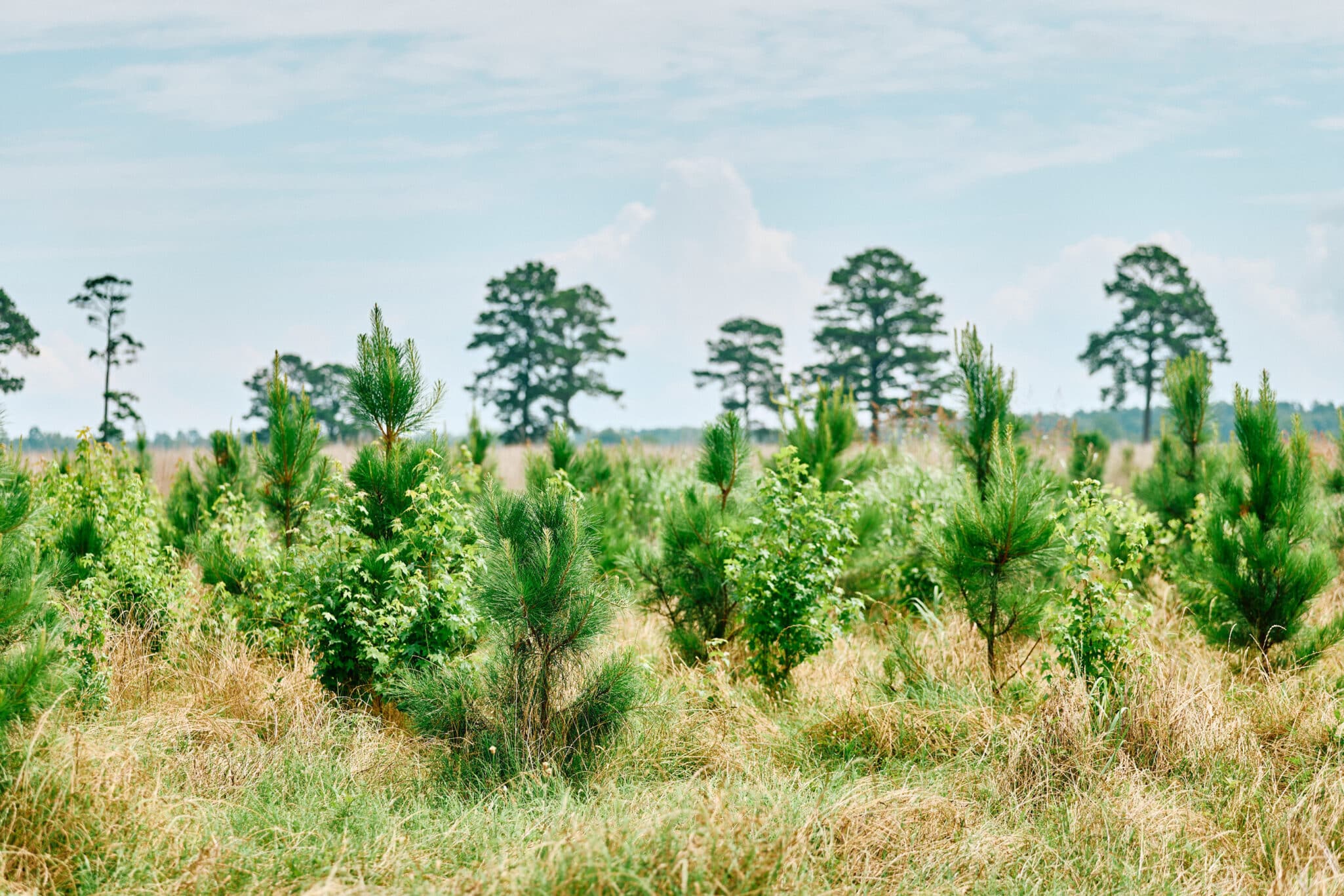Key Takeaways:
- Chestnut Carbon and Funga form a new collaboration to enhance carbon storage through afforestation and soil restoration.
- The partnership integrates Chestnut’s large-scale reforestation projects with Funga’s biodiverse microbiome inoculations.
- More than 300,000 Funga-inoculated trees will be planted during the upcoming pine planting season.
- Both organizations emphasize ecological benefits, from improved tree growth to increased biodiversity and carbon sequestration.
- The partnership aims to scale efforts across degraded lands in the U.S. Southeast in future planting seasons.
Chestnut Carbon and Funga Announce Joint Effort
Chestnut Carbon and Funga have entered into a strategic partnership to accelerate forest restoration and carbon removal in the United States. The collaboration combines Chestnut’s large-scale afforestation projects with Funga’s expertise in restoring fungal biodiversity in soils, creating a model designed to enhance both forest health and carbon storage capacity.
“Chestnut is blazing a new trail for forest regeneration within the US. Through this partnership Funga can accelerate Chestnut’s impact, while ensuring fungal biodiversity is at the forefront of this new model for forest restoration,” said Colin Averill, Founder and CEO of Funga.
How the Chestnut Carbon & Funga Partnership Works
Chestnut develops nature-based carbon removal solutions through afforestation and improved forest management, focusing on degraded agricultural lands. Since 2022, the company has planted over 17 million trees across more than 30,000 acres in the Southeastern U.S.
Funga complements this approach by restoring soil microbiomes, reintroducing vital fungal partners to seedlings. These microbes support nutrient uptake, improve forest resilience, and increase carbon sequestration rates.
By planting Funga-inoculated trees, Chestnut expects faster forest regeneration and improved ecosystem services, particularly on degraded soils.
Upcoming Projects and Planting Plans
This pine planting season, Chestnut will plant over 300,000 trees inoculated with Funga’s microbial technology. These seedlings, already carrying a biodiverse soil microbiome, are expected to grow more effectively in overworked soils, accelerating carbon storage and ecosystem restoration.
“Funga has proven to be an exceptional partner in Chestnut’s mission to restore native, biodiverse forests,” said Sarah Ford, Chief Forestry Officer at Chestnut Carbon. “Their innovative focus on rebuilding the soil microbiome aligns seamlessly with our ecological goals, resulting in enhanced tree growth and increased carbon sequestration.”
Looking Ahead
Both organizations emphasize that collaboration is central to addressing the climate crisis. By combining Chestnut’s expansive afforestation initiatives with Funga’s soil restoration methods, the partnership seeks to scale its impact across additional U.S. lands in the coming years.
This joint effort highlights a growing trend in nature-based solutions—demonstrating that complementary climate approaches can deliver broader benefits for ecosystems, communities, and the global carbon balance.


